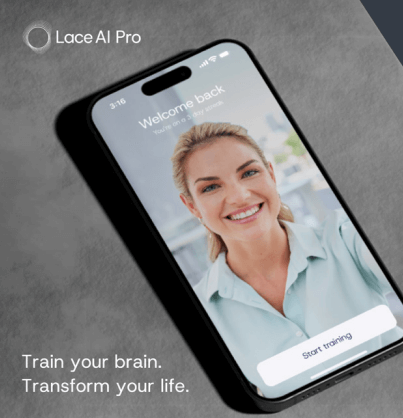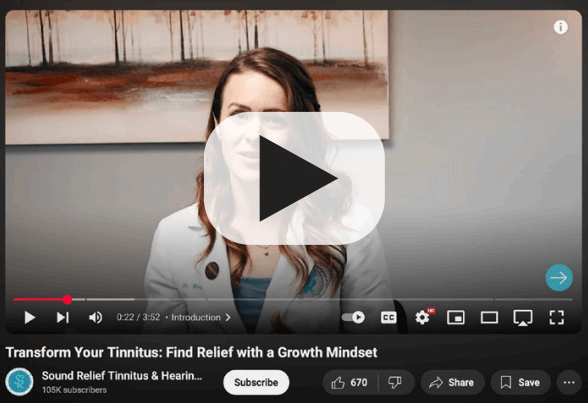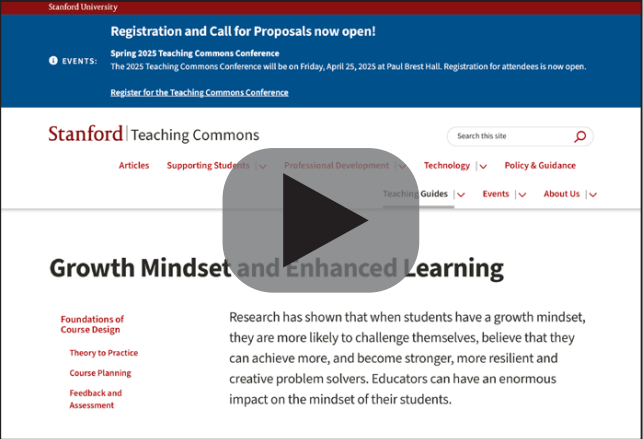Hear it Here
Hearing Health & Wellness News
Sound Relief Tinnitus & Hearing Center Quarterly Newsletter | Spring 2025
Spring Fever… in Your Ears?
Spring has sprung! Along with ushering in warmer weather andbeautiful blossoms, the season, unfortunately, increases pollenproduction and allergy symptoms. Although airborne allergens existthroughout the year, we see a dramatic increase in patients who sufferfrom allergy-related hearing loss and tinnitus in springtime. This maylead you to wonder: Do allergies cause hearing loss or tinnitus? Yes, infact, allergies can impact hearing and exacerbate tinnitus.
How Allergies Affect Hearing
Allergic rhinitis, more commonly referred to as “hay fever,” can cause a variety of symptoms, including itchy eyes, sneezing, a runny nose, a feeling of pressure in the ear, and the sensation that the ear is clogged. For some patients, the inflammation and/or excess fluid diminishes the person’s ability to hear or creates tinnitus symptoms (ringing in the ears). Those already suffering from tinnitus may hear louder ringing or experience worsening tinnitus symptoms.
The immune system responds to allergies by producing antibodies that release the compound histamine. Histamine causes itchy eyes, sneezing, and a runny nose – essentially, hay fever. This excess mucus production can obstruct the Eustachian tube, which is the drainage passage for the middle ear. The middle ear amplifies and transfers sound from the outer ear to the inner ear. Therefore, any inflammation or blockage in this area can interfere with your sense of hearing and/or cause an ear infection.
Dr. Julie Prutsman, the owner and founder of Sound Relief Hearing Center, describes the relationship between allergies and hearing loss in the following way: “Oftentimes allergic patients complain of a slight hearing.
Struggling to Hear in Noisy Places?
Hearing aids are incredible devices that amplify sound and make conversations clearer, but hearing is about more than just volume. Even with hearing aids, some people struggle to follow conversations in noisy restaurants, keep up with fast talkers, or understand speech in group settings. Why? Because hearing involves not just your ears but also your brain. Your brain must process the sounds it receives, separating speech from background noise, filling in gaps when words are unclear, and making sense of what you’re hearing. If your auditory processing abilities are weakened due to age, hearing loss, or other factors simply amplifying sound isn’t enough. That’s where LACE AI Pro comes in.

Spring Cleaning
For Your Ears
![]()
Simple Tips for
Healthy Hearing
Spring is here! The days are gettinglonger, the flowers are blooming,and it’s the perfect time for a littlespring cleaning. But while you’redecluttering your home, don’t forgetabout your ears! Here are a feweasy ways to keep them happy andhealthy this season.
1. Ditch the Cotton Swabs—Seriously!
We know, we know; cleaningyour ears with a cotton swab feelslike the right thing to do. But inreality, you’re just pushing earwaxdeeper, which can cause blockages or even affect your hearing.Your ears clean themselves (prettyamazing, right?). If you feel likethey’re getting clogged, try a fewdrops of warm water or an earwaxremoval solution instead.
We Love Referrals!
Referrals are the greatest compliment you can give us!

Introducing LACE AI Pro
LACE AI Pro is like a workout for your brain, designed to improve how it processes sound and speech. It trains your brain to:
-
Better distinguish speech from noise.
-
Follow fast conversations more easily.
-
Strengthen auditory memory and focus.
Just as physical therapy helps rebuild strength after an injury, LACE helps “retrain” your brain to listen more effectively, whether you’re using hearing aids or not. It bridges the gap between what your ears hear and what your brain understands, helping you feel more confident and capable in everyday situations. With just 15 minutes a day, LACE AI Pro provides personalized, engaging exercises you can do at home to enhance your hearing and communication skills. If you’ve ever felt like hearing aids weren’t enough, or you simply want to improve how you hear and process sound, LACE AI Pro could be the perfect solution for you. Best of all, it’s affordable, convenient, and can be done right from home. Whether you use hearing aids or not, LACE AI Pro is designed to make a real difference in your daily life.
Just as physical therapy helps rebuild strength after an injury. LACE helps “retrain” your brain to listen more effectively, whether you’re using hear- ing aids or not. It bridges the gap between what your ears hear and what your brain understands, helping you feel more confident and capable in everyday situations. With just 15 minutes a day, LACE AI Pro provides personalized, engaging exercises you can do at home to enhance your hearing and communication skills. If you’ve ever felt like hearing aids weren’t enough, or you simply want to improve how you hear and process sound, LACE AI Pro could be the perfect solution for you. Best of all, it’s affordable, convenient, and can be done right from home. Whether you use hearing aids or not, LACE AI Pro is designed to make a real difference in your daily life.
Hearing Loss Myths:
There are plenty of misconceptions about hearing loss that can prevent people from getting the help they need. Let’s clear up a few common myths:
Myth #1
Only Older Adults Experience Hearing Loss
Fact
Hearing loss can affect people of all ages, including children and young adults. Loud noise exposure, genetics, and certain medical conditions can contribute to early hearing issues.
Myth #2
Hearing Aids Restore Hearing to Normal
Fact
Hearing aids improve hearing and communication but cannot repair areas of total hair cell loss. They do, however, make a huge difference in quality of life for people who seek treatment before the hearing loss is severe to profound.
Myth #3
If You Can Hear Some Sounds, Your Hearing is Fine
Fact
Hearing loss often happens gradually, and many people don’t realize they’re missing certain frequencies. Regular hearing checks help catch issues early, which is key in maximum success with devices.
Myth #4
Hearing Loss Isn’t a Big Deal
Fact
Untreated hearing loss can lead to social isolation, depression, cognitive decline, and communication difficulties. Addressing it early improves overall well-being and treatment success.
If you or a loved one have concerns about hearing loss, consider scheduling a hearing evaluation to stay on top of your hearing health.
Welcome Dr. Gina Gates,
Au.D., CH-TM
1. What’s something most people don’t know about you?
“I absolutely love flowers and learning about their meanings (Floriography). One of my hobbies is making bouquets for gifts, events, or just for fun! I even named my dogs after a few of my favorite flowers, Poppy and Daisy. ”

2. What made you decide to become an audiologist?
“I was first introduced to Audiology through my dad. He earned a BA degree in Audiology and Speech-Language Sciences at UNC Greeley and planned to continue on to graduate school. However, he decided to go a completely different direction. He moved to Oregon and joined a rock band instead! Growing up he often shared his regret about not pursuing a career as an audiologist and encouraged me to explore it for myself. I took some intro courses in college and I loved it!”
3. What’s the most rewarding part of your job?
“Helping people to make meaningful changes in their lives through better hearing. Whether it’s reconnecting with loved ones, discovering new sounds, or finding relief from tinnitus, each experience is unique and impactful.”
4. What’s your perfect weekend?
“A perfect weekend for me would be spent in Yosemite National Park with my husband, son, and two dogs. As a Colorado native, I am happiest outdoors.”
5. If you could instantly master any skill (not work-related), what would it be?
“The ability to understand and communicate in any language.”
6. What’s your favorite meal to cook or a recipe you’ve perfected?
“I come from a big Italian family. Growing up, my mom used to make my Nonnie’s spaghetti sauce every Sunday. It is now my favorite meal to make for my family as well.”

Spring Cleaning
For Your Ears
2. Give Your Hearing Aids a Spring Refresh
If you wear hearing aids, now’s a great time to clean them up! Wipe them down daily, check for wax buildup, and make sure they’re working properly. If they sound weak or are giving you feedback, give us a call to schedule a cleaning. We’re happy to help!
3. Check-In on Your Hearing Health
Spring is all about fresh starts, so let’s make healthy hearing part of the plan! If you have questions about your ears, tinnitus, or hearing aids, give us a call or stop by Sound Relief Tinnitus & Hearing Center. We’d love to help you start the season with clear, happy ears!

Digital News!
Signup to receive our digital newsletter.
soundrelief.com/newsletter/
Introducing
The Sound
Relief Podcast
with Dr. Julie!

I’m so excited to share something we’ve been working on for a while — our brand-new show, The Sound Relief Podcast with Dr. Julie!
This podcast is an extension of the conversations I have every day with patients in our offices — real talk about tinnitus, hearing loss, emotional wellness, and the tools that truly make a difference. In each episode. We’ll explore proven strategies, bust common myths, and talk with experts and patients who are finding their way to relief and better hearing health.
Whether you’re just beginning your journey or looking for continued support, this podcast was created with you in mind.
You can listen now on Apple Podcasts, Spotify, or YouTube.
Thank you for being part of this community — and I can’t wait to continue the conversation with you, one episode at a time!
100,000
subscribers!

We Just Hit 100,000 Subscribers — Are You One of Them?
I am thrilled to share that our Sound Relief YouTube channel, @Sound_Relief_Tinnitus_Hearing, just reached 100,000 subscribers!
This milestone means so much to us because it shows just how many people are actively seeking support and understanding of real solutions for tinnitus and hearing health.
If you have not subscribed yet, I would love for you to join us. On our channel, we break down the science behind tinnitus, share practical self-care strategies, and offer expert guidance to help you take control of your hearing health — all in bite-sized, easy-to-understand videos. Whether you’re just beginning your journey, or looking for ways to build on the progress you’ve made, there’s something valuable waiting for you!
Stay well,
Dr. Julie
How Allergies Affect Hearing
loss and a sense of fullness or pressure. Usually, a hearing test will show some hearing loss, and a tympanogram will reveal reduced mobility of the tympanic membrane. That means the middle ear has some fluid or inflammation that may need to be addressed with medication.”
Types of Allergy-Related Hearing Issues
Fullness: Excess fluid in the ear creates pressure or a clogged feeling in the ear. The fluid presses against the eardrum, causing discomfort and making it more difficult to hear. In most cases, this discomfort will dissipate with time. However, if you are experiencing any pain, this could be a symptom of an ear infection, and you should seek medical attention immediately.
Conductive Hearing Loss: Conductive hearing loss occurs when sound waves cannot properly flow through the ear and into the tiny bones of the middle ear. Excess fluid or ear wax may interfere with sound as it travels to the cochlea. Although conductive hearing loss is curable and may improve naturally, it is difficult to determine if hearing loss is temporary, curable, or permanent without thorough testing. If you experience sudden or noticeable hearing loss, schedule an appointment with a hearing specialist right away. The longer you wait, the more difficult it may be to treat – and you don’t want to reach the point of no return.
Tinnitus: Allergy-related tinnitus occurs when tinnitus only develops alongside other allergy symptoms. If you suffer from tinnitus for several months of the year due to allergies, contact Sound Relief Tinnitus & Hearing Center for help.
Managing Allergy-Related Hearing Issues
If you suspect that your hearing issues are related to seasonal allergies, there are steps you can take to reduce your symptoms:
Monitor pollen levels: Check pollen forecasts and try to stay indoors when levels are high.
Use allergy medications: Antihistamines, decongestants, and nasal sprays can help relieve congestion and reduce fluid buildup in the ears.
Stay hydrated: Drinking plenty of water can help thin mucus and promote drainage.
Practice good ear hygiene: Avoid inserting cotton swabs or other objects into your ears, as they can push wax or fluid deeper.
Consider allergy treatments: If your allergies are severe, allergy shots (immunotherapy) may help reduce your symptoms over time.
When to See an Audiologist
Some people who experience mild irritation or annoyance due to tinnitus find that the ringing or high-pitched sound worsens with allergies. Unremitting tinnitus can interfere with your ability to hear, mood, sleep, and quality of life. If you or someone you know suffers from tinnitus, don’t give up hope.
Dr. Julie and her team specialize in personalized tinnitus relief solutions at Sound Relief Tinnitus & Hearing Center. Please give us a call or browse our website for more information.
Additional Resources:
https://www.soundrelief.com/tinnitus/tinnitus-impact-survey/
https://www.soundrelief.com/tinnitus/
https://www.soundrelief.com/schedule-an-appointment/
Unlock the Full Potential of Tinnitus Retraining Therapy with a Growth Mindset
What if Managing Tinnitus Started with Your Mindset? At Sound Relief Hearing Center, we know that Tinnitus Retraining Therapy (TRT) can be life-changing. But did you know the key to your success may be in how you think about the treatment process?
A growth mindset is the secret weapon many overlook. This mindset can dramatically accelerate your progress and relief when paired with the right skills and lifestyle modifications, tinnitus treatment, prescriptive sound therapy, and your audiologist’s guidance.
Watch this video below to explore how shifting your mindset can unlock the full potential of TRT.
What Is a Growth Mindset?
The term growth mindset, coined by renowned psychologist, Dr. Carol Dweck, refers to the belief that your abilities and outcomes are not fixed – you can improve them through learning, effort, and persistence. Think of it like building muscle: no one gets stronger overnight. However, consistent effort leads to steady growth.
When applied to tinnitus relief, this means you should approach TRT with curiosity, patience, and self-belief. If you are skeptical (and that is normal), try shifting your thoughts from, “Nothing will help me!”, to, “What can I do to feel better today?”.
Trust the process. TRT works—but only if you allow yourself to engage.
Learn More About Growth Mindset – Carol Dweck
Tip #1: Effort Drives Results
Imagine paying for a gym membership but never working out – would you expect results? The same principle applies to tinnitus treatment. Attending appointments and receiving sound therapy is often not enough.
Your success hinges on how much you engage outside of appointments. That is why we offer the Sound Relief Learning Center (SRLC) – a resource packed with tools, strategies, and expert education to help you become the expert in managing your tinnitus.
Ask yourself:
• Am I applying the techniques I have learned every day?
• Am I fully participating during my follow-up appointments?
• Have I explored the learning resources available?
If you are new to TRT, you might wonder about the cost of tinnitus retraining therapy, or even what hearing aids for tinnitus cost. Our goal is to equip you with all the information and support you need to confidently invest in your relief. If your progress feels slow, reflect on the effort you put in. Your active participation fuels your results.
Unlock the Full Potential of TRT
Tip #2: Stay Persistent
Here is something many people misunderstand: TRT is not an overnight fix. Think of it like planting a tree. In the early stages, it may feel like nothing is happening, but strong roots are forming beneath the surface. Tinnitus spikes or flare-ups are not failures – they are natural. They are actually opportunities to apply what you have learned.
Furthermore, by sharing what you’ve learned with others, you are reinforcing the new neural pathways in your brain. We have created resources to help you and the people you care about better understand the symptom of tinnitus that you are actively trying to control. In fact, you could play for them samples of tinnitus from our website so they can empathize better with your experience found here – “What does tinnitus sound like?” and here – tinnitus sound effect.
We also realize that at times you may feel stuck or frustrated like an athlete who hits a plateau. But progress is made when you stay persistent, adjust strategies, and strengthen resilience. Use what may feel like a “setback” to:
• Reassess your coping tools
• Reinforce techniques for tinnitus management
• Break negative thought loops tied to fear or frustration.
Every challenge is a steppingstone on your path to relief.
You Are the Catalyst for Change
Your audiologist is here to provide expert guidance, tools, and personalized support – but ultimately, YOU are the catalyst for change.
When you approach tinnitus retraining therapy with a growth mindset, you take control of your tinnitus journey and pave the way for lasting relief.
Helpful Resources: Learn More About Growth Mindset – Carol Dweck » https://teachingcommons.stanford.edu/teaching-guides/foundations-course-design/learning-activities/growth-mindset-and-enhanced-learning
[Watch Madison’s TRT Video » https://youtu.be/Kjl_CPnXx6Q
[Explore the Sound Relief Learning Center » https://www.soundrelief.com/sound-relief-learning-center/
Optional: [Learn About Brain Plasticity & Resilience – Dr. Andrew Huberma » https://www.hubermanlab.com/topics/brain-and-neuroplasticity/



